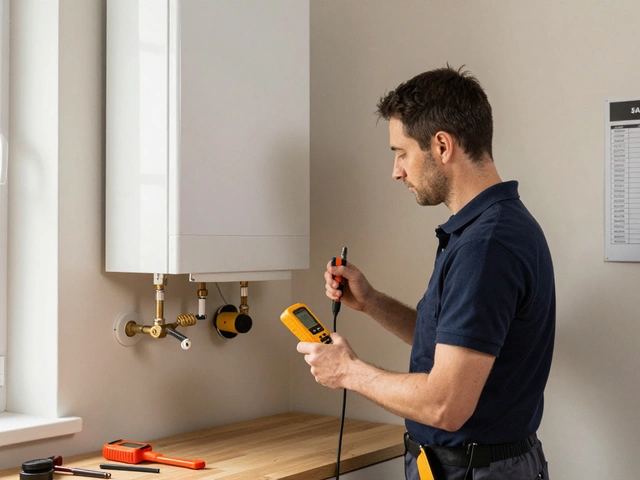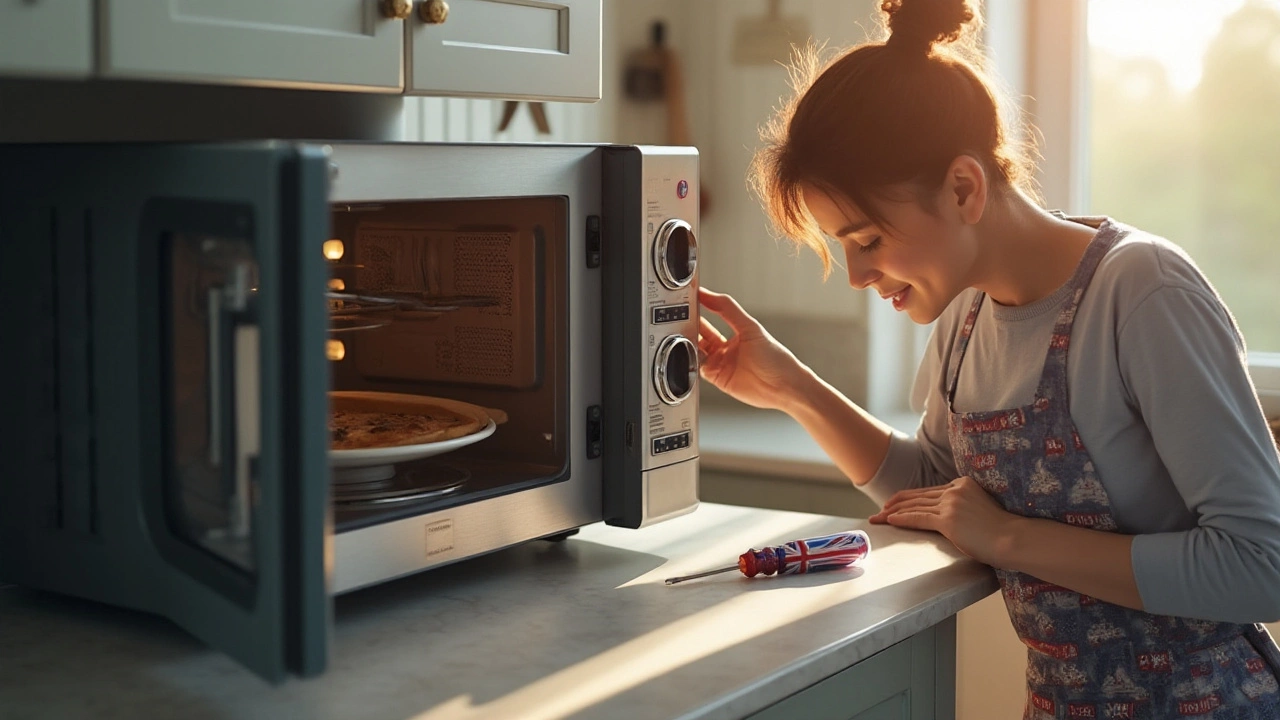Microwave Problems You Can Solve at Home (and When to Call the Experts)
If your microwave suddenly stops heating, makes strange noises, or starts sparking, you’re probably wondering what’s wrong. The good news is many issues are simple to spot and fix. The bad news? Some problems need a qualified technician, especially when dealing with electricity or sealed‑in components. Below we break down the most common microwave problems, quick DIY checks, and the signs that it’s time to call Rugby Appliance Repair Services.
Typical Microwave Issues and Easy DIY Tests
1. Microwave won’t heat. The first thing to test is the door latch. If the latch isn’t fully engaged, the microwave’s safety circuit will shut off heating. Open and close the door a few times, making sure it clicks securely. Next, try a cup of water. If the water stays cold, the magnetron – the part that generates microwaves – may be failing. Replacing a magnetron is best left to pros.
2. Turntable stops turning. Check the turntable roller and support ring for food debris or a broken plastic piece. Clean any grime and realign the plate. If the motor still won’t spin, the motor itself could be burnt out, which usually needs a technician.
3. Sparking inside the cavity. Sparks often come from metal objects, foil, or a damaged waveguide cover (the small metal panel inside the microwave). Remove any metal, then inspect the interior for a cracked waveguide cover. If you see a blackened or broken cover, stop using the microwave and call a repair service.
4. Unusual noises. A humming sound is normal, but rattling or grinding can indicate a loose fan blade or a worn‑out stirrer motor. Unplug the unit, remove the outer cover, and look for anything loose. Tightening a screw may solve the issue, but if the fan motor is buzzing, it’s safer to have a pro replace it.
When to Call Rugby Appliance Repair Services
If you’ve tried the basic checks above and the problem persists, it’s time to reach out for professional help. Here are the red‑flag scenarios that warrant a call:
- Strong sparks or flames inside the microwave.
- Repeated heating failures even after checking the door latch.
- Burnt smells, especially near the magnetron or wiring.
- Any repair that involves opening the sealed microwave cavity – the high‑voltage capacitor can hold charge even when unplugged.
Our team at Rugby Appliance Repair Services has the training and tools to diagnose and fix these issues safely. We can replace magnetrons, repair waveguide covers, and service turntable motors quickly, often same‑day.
Before you call, have your microwave’s make, model, and any error codes ready. This speeds up the diagnosis and helps us bring the right parts. We pride ourselves on transparent pricing, so you’ll know what to expect before any work starts.
Remember, trying to repair high‑voltage components yourself can be dangerous. If you’re ever unsure, pause and give us a ring. A quick professional fix is usually cheaper than replacing the whole unit, and you’ll get peace of mind that your microwave is safe to use again.
Got a microwave that’s acting up? Start with the simple checks above, and if the problem sticks, let Rugby Appliance Repair Services take over. We’re just a call away, ready to get your kitchen back on track.







